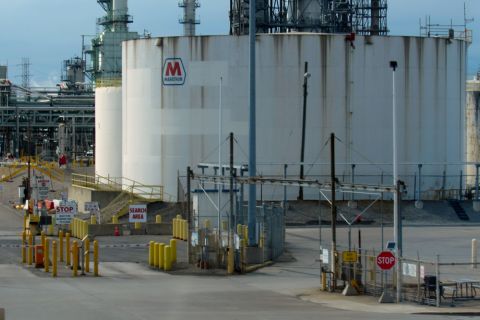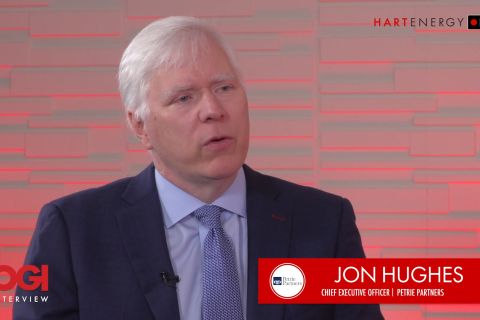This month Congress was supposed to take up-again-the question of a national energy policy and specifically, opening up the Arctic National Wildlife Refuge (ANWR). Experts still debate the practicality of drilling there. A few weeks ago, however, ConocoPhillips pulled out of a lobbying group, Arctic Power, that is pushing to allow drilling on the coastal plain. BP had exited this group earlier. Environmentalists crowed that the two companies had come to their senses, but their decision likely had more to do with other factors. "...Drilling in ANWR is not a make-or-break issue for [the majors] and in all candor, other possibilities may be more attractive," say James Lucier and Liz Carver of Prudential Equity Group in their recent report on Washington politics. "We note that the oil companies are not expending any political capital simply to secure the goal of drilling in ANWR." Of course, Alaska's Congressional delegation is. The Prudential analysts still think drilling in ANWR has a chance. First, they estimate the number of yes votes in the Senate is between 52 and 56, as Republicans now hold the majority and could persuade a few Democrats to cross over. They also say that enough senators have traveled to ANWR to become more familiar with the area. Thus, they may be more ready to accept the idea that small amounts of acreage on the coastal plain can be drilled without environmental damage. High oil prices and supply fears throughout 2004 give yet more impetus to this issue. The analysts still warn that the main problem is the opposition of the environmentalists, who see ANWR as a non-negotiable issue. This affects the Democratic members of Congress they support. Not coincidentally, says Prudential, the environmental movement has the power to deliver votes in key presidential primary states such as New York, New Hampshire, Massachusetts and California-which is why certain Democratic senators have vowed to filibuster on this issue. Separately, Prudential energy analysts Mark Mayer and Jason Gammel have revised their oil price outlook for 2005. They had thought $25 would be the average in 2004, but it turned out to be $41 for the year. Now they are estimating the 2005 price will average $35, which may be conservative. But at least their estimate is $10 above the prior-year forecast, meaning the floor seems to be higher. The wildcard remains to what degree psychology will add dollars above the "correct" price that is justified by market fundamentals. On the natural gas side, many end-users have joined forces to call on Congress to address the issue of affordable gas supply. The Consumer Alliance for Affordable Natural Gas is one. It counts as members the American Forest and Paper Association, the Association of American Railroads, Dow Chemical, the American Chemistry Council and the Society of the Plastics Industry. In testimony recently they said no single silver bullet exists to close the supply-demand imbalance they see, and they urged a balanced set of actions. These included aggressive conservation measures, expanding U.S. gas supply through production and more LNG imports, and support for an Alaskan gas pipeline. The group also called for more diversity of fuel supply, including renewables such as biodiesel, syngas made from coal, and nuclear energy. The Consumer Alliance demanded higher budgets at the Bureau of Land Management to speed up the permit process. It called for the ability of states to selectively lift some drilling moratoria. Last month at the NAPE Expo in Houston, we announced the winners of the 2004 Oil and Gas Investor Excellence Awards. In the March issue we'll have detailed articles on all the winners. However, it turns out that until April, we are sworn to secrecy about the most exciting one-Best Discovery. It's a classic case of cloak-and-dagger as the operator ties up the last of its leases surrounding its new well. Best M&A Deal was awarded to Petrohawk Energy Corp. for its company-making acquisition of Wynn-Crosby Energy. Southwestern Energy Co. was recognized for the Best IR Program. The Best Corporate Citizen award-winner was Devon Energy Corp. for its extensive community ambassador program that now extends from the Barnett Shale area in North Texas to 14 other operating regions. Harold Hamm's Continental Resources Inc. won the Best Field Rejuvenation award for its enhanced-recovery project at Cedar Hills in North Dakota. Financing of the Year went to Sterne, Agee & Leach Inc. and its client, Delta Petroleum Corp., for several deals that helped Delta grow significantly last year. Finally, our Executive of the Year is James C. Flores, chairman, president and chief executive of Plains Exploration & Production Co. Flores had a busy year in which he raised significant capital to acquire Nuevo Energy Co. and took a Plains E&P-related company, Plains Resources, private.
Recommended Reading
Marathon Petroleum Sets 2024 Capex at $1.25 Billion
2024-01-30 - Marathon Petroleum Corp. eyes standalone capex at $1.25 billion in 2024, down 10% compared to $1.4 billion in 2023 as it focuses on cost reduction and margin enhancement projects.
Hess Corp. Boosts Bakken Output, Drilling Ahead of Chevron Merger
2024-01-31 - Hess Corp. increased its drilling activity and output from the Bakken play of North Dakota during the fourth quarter, the E&P reported in its latest earnings.
The OGInterview: Petrie Partners a Big Deal Among Investment Banks
2024-02-01 - In this OGInterview, Hart Energy's Chris Mathews sat down with Petrie Partners—perhaps not the biggest or flashiest investment bank around, but after over two decades, the firm has been around the block more than most.
Some Payne, But Mostly Gain for H&P in Q4 2023
2024-01-31 - Helmerich & Payne’s revenue grew internationally and in North America but declined in the Gulf of Mexico compared to the previous quarter.
Petrie Partners: A Small Wonder
2024-02-01 - Petrie Partners may not be the biggest or flashiest investment bank on the block, but after over two decades, its executives have been around the block more than most.





